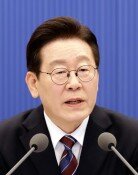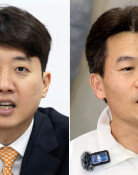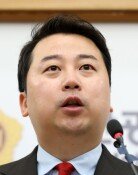[Opinion] Interviewing a Man of Power
[Opinion] Interviewing a Man of Power
Posted May. 29, 2003 21:32,
Oriana Fallaci is an Italian female writer who is famous for aggressive interviews with the worlds powerful leaders. She does not hesitate to express her objection to interviewees and at times acts rough with them. In an interview with Chinese leader, Deng Xiaping, she gave him an irritating question. So Deng Xiaping asked her, will you dare to do that to your father?, and she said right back to him, why not?. Deng went, You must have earned a slap from your father, then, and she told him back: Yes, which makes you feel that way too, right? Then go ahead. Its good that I can write this down, though. These talks ended with Deng in laughter.
Many hurdles lie in interviewing a person in power. Some asked for a questionnaire beforehand to make sure that he/she do not receive unpleasant questions during the interview. Authoritative settings often make interviewers too cowered to achieve satisfactory results from the given time. An experienced interviewer, however, does not shrink. The undaunted interviewer can read every underlying political intent of the interviewee and extract truth from him as if peeling onions.
In Korea, there are several occasions of press conference each year with the president at Chong Wa Dae, but mostly it ends without any up close. Since prepared scenario gives every participant a specific role to play, it is hard to ask for detailed explanation on issues, or to make bitter remarks. During the two former presidents administration, there was an unspoken rule among the press that all the questions made by the press pool should be reviewed Chong Wa Dae in advance. Under the presidency of Park Jung-hee, every press briefing was pre-orchestrated and aired hours later for secondary check-up. For the reason, there was an episode long ago that people watch the outdoor press briefing on a fine day on TV while rain poured out of their windows.
President Roh Moo-hyun held a press conference the other day, in which he tried to clarify his position on allegations of his involvement in land-related irregularities. Some criticized this as a beating-around-the-bush remarks. They blamed journalists there for not asking smart questions. And the accused reporters complained about the scenario, by which only seven of them were allowed to question the president in an orderly manner. The president asked for further questions at the end, but the long tradition muted the press. On the following day, Chong Wa Dae, which was conscious of the peoples evaluation of the event, announced that it would eliminate the prepared scenario at the press conference, scheduled in next month for commemorating 100 days of the presidential inauguration. People will pay keen attention to see who practice Fallacis advise, interviewing a man of power requires a lot of guts.







